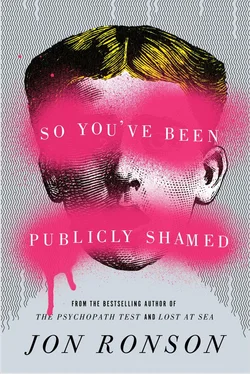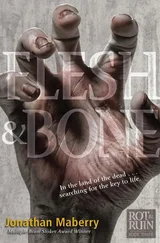Justine Sacco (in dark glasses) at Cape Town Airport. Photograph by @Zac_R, reproduced with his permission.
Three weeks had passed since Justine had pressed send on the tweet. The New York Post had been following her to the gym. Newspapers were ransacking her Twitter feed for more horrors.
And the award for classiest tweet of all time goes to…
“I had a sex dream about an autistic kid last night.” (February 24, 2012)
—“16 TWEETS JUSTINE SACCO REGRETS,” BUZZFEED, DECEMBER 20, 2013
This was the only time Justine would ever talk to a journalist about what happened to her, she told me. It was just too harrowing. And inadvisable. “As a publicist,” she e-mailed, “I don’t know that I would ever recommend to a client that they participate in your book. I’m very nervous about it. I am really terrified about opening myself up to future attacks. But I think it’s necessary. I want someone to just show how crazy my situation is.”
It was crazy because “only an insane person would think that white people don’t get AIDS.” That was about the first thing she said to me when she sat down. “To me, it was so insane a comment for an American to make I thought there was no way that anyone could possibly think it was a literal statement. I know there are hateful people out there who don’t like other people and are generally mean. But that’s not me.”
Justine had been about three hours into her flight — probably asleep in the air above Spain or Algeria — when retweets of her tweet began to overwhelm my Twitter feed. After an initial happy little “Oh, wow, someone is fucked ,” I started to think her shamers must have been gripped by some kind of group madness or something. It seemed obvious that her tweet, whilst not a great joke, wasn’t racist, but a reflexive comment on white privilege — on our tendency to naively imagine ourselves immune from life’s horrors. Wasn’t it?
“It was a joke about a situation that exists,” Justine e-mailed. “It was a joke about a dire situation that does exist in post-apartheid South Africa that we don’t pay attention to. It was completely outrageous commentary on the disproportionate AIDS statistics. Unfortunately, I am not a character on South Park or a comedian, so I had no business commenting on the epidemic in such a politically incorrect manner on a public platform. To put it simply, I wasn’t trying to raise awareness of AIDS, or piss off the world, or ruin my life. Living in America puts us in a bit of a bubble when it comes to what is going on in the third world. I was making fun of that bubble.”
—
As it happens, I once made a similar — albeit funnier — joke in a column for The Guardian . It was about a time when I flew into the United States and was sent for “secondary processing” (there was a mafioso hit man on the run at the time with a name that apparently sounded quite a lot like Jon Ronson). I was taken into a packed holding room and told to wait.
There are signs everywhere saying: “The use of cell phones is strictly prohibited.”
I’m sure they won’t mind me checking my text messages, I think. I mean, after all, I am white.
My joke was funnier than Justine’s joke. It was better worded. Plus, as it didn’t invoke AIDS sufferers, it was less unpleasant. So mine was funnier, better worded, and less unpleasant. But it suddenly felt like that Russian roulette scene in The Deer Hunter when Christopher Walken puts the gun to his head and lets out a scream and pulls the trigger and the gun doesn’t go off. It was to a large extent Justine’s own fault that so many people thought she was a racist. Her reflexive sarcasm had been badly worded, her wider Twitter persona quite brittle. But I hadn’t needed to think about her tweet for more than a few seconds before I understood what she’d been trying to say. There must have been among her shamers a lot of people who chose to willfully misunderstand it for some reason.
“I can’t fully grasp the misconception that’s happening around the world,” Justine said. “They’ve taken my name and my picture, and have created this Justine Sacco that’s not me and have labeled this person a racist. I have this fear that if I were in a car accident tomorrow and lost my memory and came back and googled myself, that would be my new reality.”
I suddenly remembered how weirdly tarnished I felt when the spambot men created their fake Jon Ronson, getting my character traits all wrong, turning me into some horrific, garrulous foodie, and strangers believed it was me, and there was nothing I could do. That’s what was happening to Justine, although instead of a foodie she was a racist and instead of fifty people it was 1,220,000.
—
Journalists are supposed to be intrepid. We’re supposed to stand tall in the face of injustice and not fear crazy mobs. But neither Justine nor I saw much fearlessness in how her story was reported. Even articles about how “we could all be minutes away from having a Justine Sacco moment” were all couched in “I am NO WAY defending what she said,” she told me.
But as vile as the sentiment she expressed was, there are some potential extenuating circumstances here that don’t excuse her behavior but might mitigate her misdeed somewhat. Repugnant as her joke was, there is a difference between outright hate speech and even the most ill-advised attempt at humor.
— ANDREW WALLENSTEIN, “JUSTINE SACCO: SYMPATHY FOR THIS TWITTER DEVIL,” Variety , DECEMBER 22, 2013
Andrew Wallenstein was braver than most. But still: It read like the old media saying to social media, “Don’t hurt me.”
—
Justine released an apology statement. She cut short her South African family vacation “because of safety concerns. People were threatening to go on strike at the hotels I was booked into if I showed up. I was told no one could guarantee my safety.” Word spread around the Internet that she was heiress to a $4.8 billion fortune, as people assumed her father was the South African mining tycoon Desmond Sacco. I wrongly thought this was true about her right up until I alluded to her billions over lunch and she looked at me like I was crazy.
“I grew up on Long Island,” she said.
“Not in a Jay Gatsby — type estate?” I said.
“Not in a Jay Gatsby — type estate,” Justine said. “My mom was single my entire life. She was a flight attendant. My dad sold carpets.”
(She later e-mailed that while she “grew up with a single mom who was a flight attendant and worked two jobs, when I was twenty-one or twenty-two, she married well. My stepfather is pretty well off, and I think there was a picture of my mom’s car on my Instagram, which gave the impression that I’m from a wealthy family. So maybe that’s another reason why people assumed I was a spoiled brat. I don’t know. But thought it was worth bringing up to you.”)
Years ago I interviewed some white supremacists from an Aryan Nations compound in Idaho about their conviction that the Bilderberg Group — a secretive annual meeting of politicians and business leaders — was a Jewish conspiracy.
“How can you call it a Jewish conspiracy when practically no Jews go to it?” I asked them.
“They may not be actual Jews,” one replied, “but they are…” He paused. “… Jewish.”
So there it was: At Aryan Nations, you didn’t need to be an actual Jew to be Jew- ish . And the same was true on Twitter with the privileged racist Justine Sacco, who was neither especially privileged nor a racist. But it didn’t matter. It was enough that it sort of seemed like she was.
Her extended family in South Africa were ANC supporters. One of the first things Justine’s aunt told her when she arrived at the family home from Cape Town Airport was: “This is not what our family stands for. And now, by association, you’ve almost tarnished the family.”
Читать дальше












